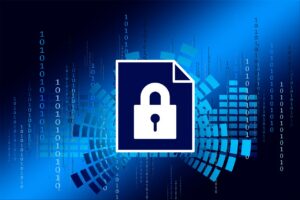New SEC Cybersecurity Requirements And Your Company

These new regulations are a direct response to the growing sophistication of cyber threats and the need for companies to safeguard their sensitive information.
Let’s delve into the key aspects of these new SEC regulations. We’ll review what they are and discuss how they may affect your business so you can stay prepared.
Understanding the New SEC Cybersecurity Requirements
The SEC’s new cybersecurity rules highlight the importance of proactive cybersecurity measures. These measure represent a necessity for businesses operating in the digital landscape. The two central requirements are the timely reporting of cybersecurity incidents and the disclosure of comprehensive cybersecurity programs.
The rules impact both U.S. registered companies and foreign private issuers registered with the SEC.
Reporting of Cybersecurity Incidents
The first rule to integrate into business practice is the disclosure of cybersecurity incidents deemed to be “material.” Companies disclose these on a new item 1.05 of Form 8-K.
Companies have a time limit for disclosure. Reporting must begin within four days of the determination that an incident is material. The company must disclose the nature, scope, and timing of the impact. The report also must include the material impact of the breach. The only exception to this disclosure rule is where disclosure poses a national safety or security risk.
Disclosure of Cybersecurity Protocols
This rule requires extra information that companies must report on their annual Form 10-K filing.
The extra information companies must now disclose includes:
- Their processes for assessing, identifying, and managing material risks from cybersecurity threats.
- Risks from cyber threats that have or are likely to materially affect the company
- The board of directors’ oversight of cybersecurity risks
- Management’s role and expertise in assessing and managing cybersecurity threats.
Potential Impact on Your Business
Is your business subject to these new SEC cybersecurity requirements? If it is, then it may be time for another cybersecurity assessment. Penetration tests and cybersecurity assessments identify gaps in your protocols to help companies reduce the risk of cyber incidents and compliance failures.
Some of the potential areas of impact on businesses from these new SEC rules are:
- Increased Compliance Burden
Businesses will now face an increased compliance burden as they work to align their cybersecurity policies with the new SEC requirements. These new rules might require a significant overhaul of existing practices, policies, and technologies. Ensuring compliance will likely mean a large amount of time and resources impacting both large corporations and smaller businesses
- Focus on Incident Response
The new regulations underscore the importance of incident response plans in place before any threat comes onto the horizon. Businesses will need to invest in robust protocols to detect, respond to, and recover from cybersecurity incidents promptly. Protocols include having clear procedures for notifying regulatory authorities, customers, and stakeholders in the event of a data breach.
- Heightened Emphasis on Vendor Management
Companies often rely on third-party vendors for various services. The SEC’s new rules emphasize the need for businesses to assess vendor practices in terms of how vendors handle cybersecurity. This shift in focus necessitates a comprehensive review of existing vendor relationships. It may mean finding more secure alternatives if a vendor can’t show that their practices are robust enough.
- Impact on Investor Confidence
Cybersecurity breaches can erode investor confidence and damage a company’s reputation. With the SEC’s spotlight on cybersecurity, investors are likely to take note. Count on savvy investors scrutinizing businesses’ security measures more closely. Companies with robust cybersecurity programs may instill greater confidence among investors, potentially leading to increased investments and shareholder trust.
- Innovation in Cybersecurity Technologies
As businesses strive to meet the new SEC requirements, they must innovate. There is bound to be a surge in the demand for advanced cybersecurity solutions. This increased demand could foster a wave of innovation in the cybersecurity sector, leading to the development of more effective cyber protection solutions.
The SEC Rules Bring Challenges, but Also Possibilities
The new SEC cybersecurity requirements mark a significant milestone in the ongoing battle against cyber threats. While these regulations pose challenges, they also present opportunities for businesses to strengthen their cybersecurity posture. Doing so well enhances customer trust, and fosters investor confidence.
By embracing these changes proactively, companies can meet regulatory expectations. They can also fortify their defenses against the ever-evolving landscape of cyber threats. Adapting to these regulations will be crucial in ensuring the long-term success and resilience of your business.
Why Is This Published By A Business Phone Company?
Here at NoContractVoIP, we believe that your success creates our success. And, since we specialize in business communication, we work to help you communicate better while staying safe. We create the cutting edge communication systems that modern companies need. And we geek out on tech stuff, so we study it for you.
To talk to a business phone system specialist and never worry about any of this again, call 866-550-0005 or contact us today.
To get the latest helpful content delivered to your inbox every month, subscribe to our newsletter here.
